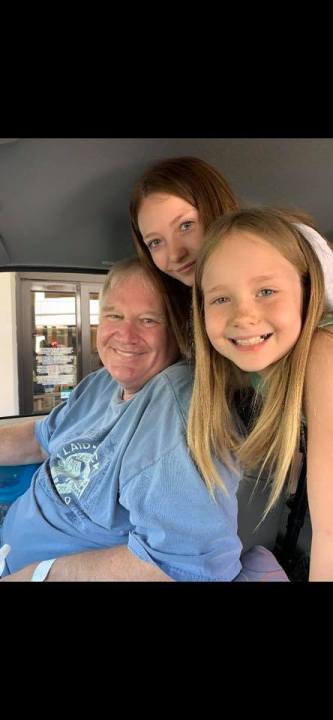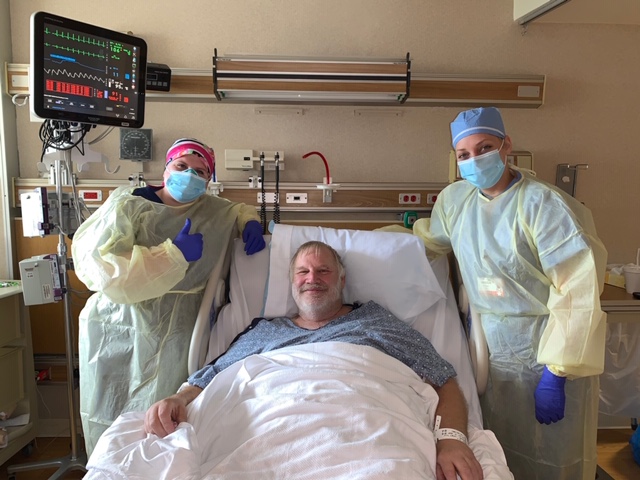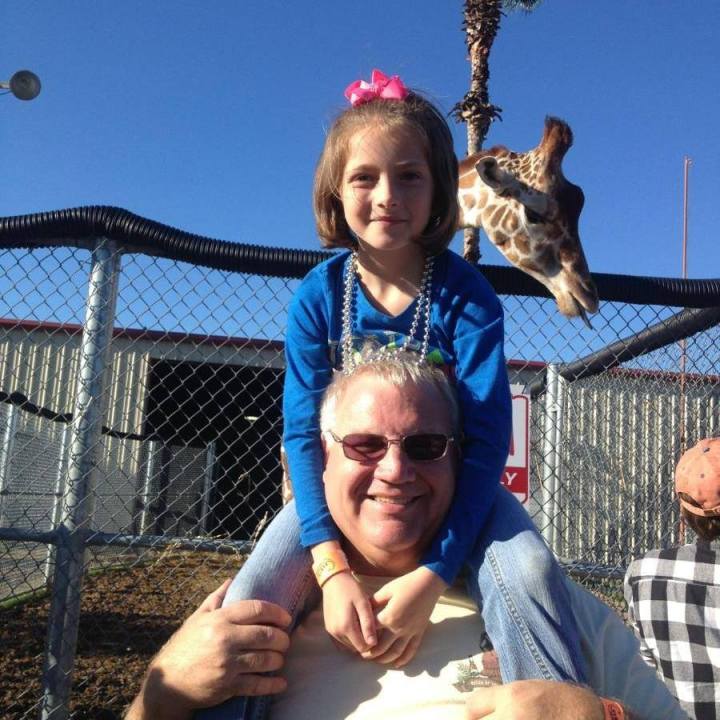GILMER, Texas (KETK) – As the number of positive coronavirus cases rises, so does the number of survivors. KETK News, sat one on one with seven East Texans who battled COVID-19 and won. Among those, Roy Anderson.
At 58-years-old, Anderson considers it a sign from God that he is still alive. He was one of the first patients at UT Health in Tyler to be treated for COVID-19, spending nearly six weeks in the hospital fighting every minute.

“Life before was very normal, very busy, work hard, play hard, no problems,” Anderson described with a smile.
As a loving grandfather who found joy in fishing and working as a distributor of arcade games, he learned quickly just how fast the virus can spread.
After a trip to New Orleans, Anderson said he had no idea what he was in for when he returned.
“Well, when it first started after I got back from New Orleans on Friday, had some headache and a fever, and through the weekend, I felt a little bad,” explained Anderson.
His symptoms went from bad to worse in just a couple of days saying, “I couldn’t eat, I would eat just nothing and my blood sugar was super high. I couldn’t get it below 300 which is high for a diabetic of course.”
For the past eight to nine years as a diabetic, he always made health a priority and realized something was gravely wrong with his heath.
Anderson described food tasting like cardboard and how his headaches continued to worsen. Worried, he went to see his doctor, who told him he didn’t have phenomena or strep. He said his doctor suggested he go home and self-isolate.
“That’s when I couldn’t breathe,” Anderson explained, “every 30 minutes was getting worse and worse, so that’s when I headed down, they got my straight into the emergency room.”

Inside the hospital, doctors immediately put him on a ventilator. Anderson said doctors then asked permission to use experimental drugs after his COVID-19 test came back positive.
“The virus didn’t scare me much. Until they said we want to put you to sleep and put you on a ventilator that was the point of, this is so real, this could be it,” explained Anderson, “I made some phone calls, I said some goodbyes if I had to.”
For more than three weeks, Anderson was in a medically induced coma. Although he doesn’t remember much, when he went back and looked at Facebook posts he was shocked.
Anderson said family and friends started posting online asking for prayers, worried he wouldn’t make it .
“They had me on complete life support. my lungs were providing zero support,” described Anderson.
Finally prayers were answered on Easter Sunday when he was pushed out of the ICU, 50 pounds lighter.
“I remember vague things once they took the tubes out of me and stuff, and they would always ask me, do you know where you are?” Anderson remembered, “I think the first few times I gave them that sheepdog look like I have no clue what’s going on.”
Once removed from the ventilator, the next battle began.

“I thought I was going to get off that bed and shuffle my way out of the hospital I couldn’t even lift my legs, hardest part was not being able to do anything it’s that helpless feeling,” said Anderson.
Beginning physical therapy, Anderson still needed help to get in and out of bed. But he was eager to go back home where he had to get around using a walker.
“When your sick, at least you can get up and go to the bathroom you use your legs, but the atrophy in my arms and legs, you could just see it,” said Anderson.
That’s when one by one, cards started coming in. With every message, he is reminded just how precious life is.
“Just in case you need a little reminder, nothing is too big for God. love you, be good to your nurse,” Anderson read in one card.
Anderson hopes by sharing his story, people will appreciate life a little bit more. While he still doesn’t know how he contracted the virus, he sees this experience as a second chance at life.
Looking forward to the day where he is well enough to donate blood to medical research in hopes of helping current patients.
















